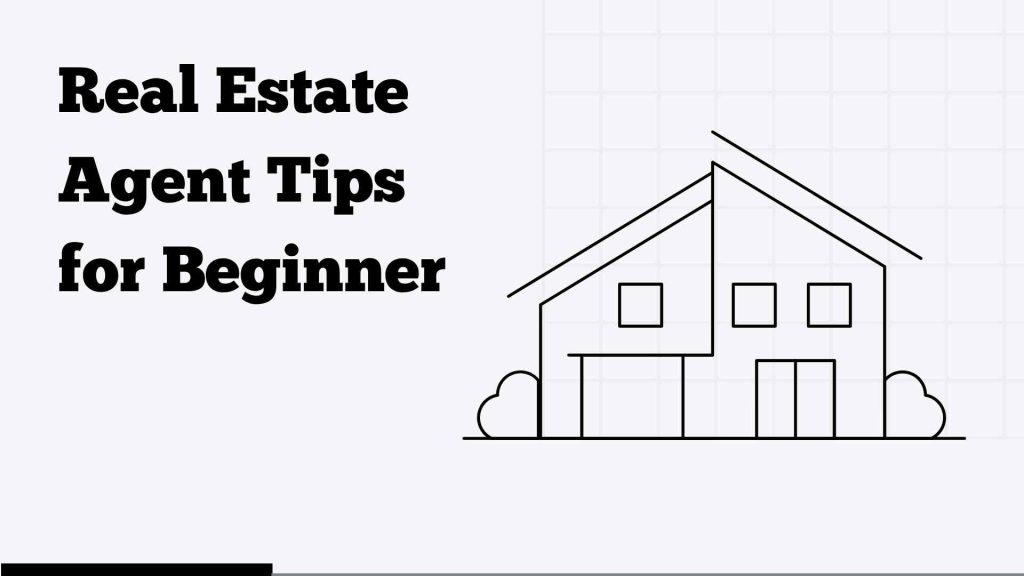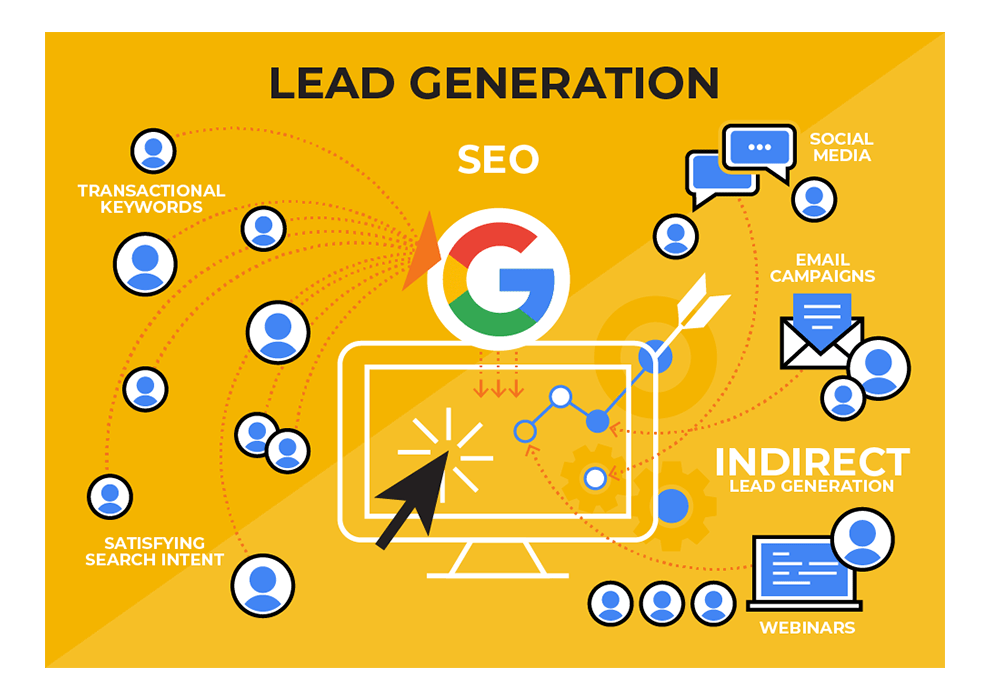Real Estate Agent Tips for Beginners: Expert Advice from Experience

Starting out as a real estate agent can be exciting—and overwhelming. I’ve been where you are, unsure of which steps to take first and afraid of making costly mistakes. After helping hundreds of new agents find their footing, this blog is my way of giving back. If you’re serious about succeeding in real estate, this guide is built for you—clear, honest, and filled with tips I wish someone had told me sooner.
Table of Contents
1. Get Licensed & Set Up Your Business
Understand Local Licensing Requirements
Your first step is education. Every state has its own real estate licensing process, so check with your local real estate commission. You’ll likely need to:
- Complete 60–180 hours of approved coursework
- Pass a written licensing exam
- Submit to a background check
- Apply for and activate your real estate license
Use trusted state sources—don’t rely on hearsay. Real Estate Express and your local board of realtors are great starting points.
Create a Six-Month Launch Budget
Here’s the truth most blogs skip: your first paycheck might take months. While you’re building your network and gaining experience, your bills don’t stop. I always advise new agents to save at least 6 months’ worth of personal expenses before going full-time.
Your basic startup costs may include:
- Pre-licensing courses and exam fees
- MLS access, lockbox subscriptions, and association dues
- Marketing materials (business cards, website, CRM)
- Continuing education and brokerage desk fees
If you’re treating real estate as a serious business (which you should), plan accordingly. Budgeting now gives you breathing room later.
Choose the Right Brokerage for Your Style
All agents must work under a licensed broker—but don’t just choose the first one that accepts you. Think of your brokerage as your support system, especially in your first year. Interview at least 3–5 firms and ask about:
- Mentorship or training programs
- Commission split vs. monthly desk fees
- Lead-sharing policies and listing support
- Office culture and expectations
I’ve worked with agents who made five figures in their first year solely because their broker gave them weekly hands-on coaching. Don’t underestimate this choice—it could define your early career.
Find a Mentor—Why This Made Me Win My First Deals
If there’s one game-changer in real estate, it’s mentorship. When I started, I shadowed a senior agent for 90 days and learned more from that than any textbook. A good mentor teaches you how to:
- Structure offers that win in tough markets
- Handle buyer objections with confidence
- Use scripts without sounding scripted
- Negotiate with both skill and empathy
Ask your brokerage if they offer mentorship programs. If not, find one through networking or local real estate meetups. Many experienced agents are willing to help—you just have to ask.
2. Build Your Toolkit & Business Plan

Image Source: Franklin County CDC – Business Planning Resources
Craft a Simple Business Plan with Goals & Metrics
One of the biggest mistakes I see beginners make? Jumping into real estate without a plan. Don’t overthink it—you just need a one-page business plan to start. Include:
- Target income: How much you want to make annually
- Lead targets: How many leads you need monthly to reach that income
- Lead sources: Where you’ll focus—referrals, online, door-knocking?
- Follow-up strategy: Calls, texts, emails—mapped out clearly
Revisit your plan monthly. Track your wins and losses. You’ll quickly find what works and what wastes your time.
Set Up Your CRM, Website, and Marketing Tools
If you don’t track your leads, you’ll lose them. Get a CRM (Customer Relationship Manager) in place from day one. There are affordable tools made for new agents like:
Also, set up a simple but professional website with your photo, service areas, and contact form. If you can’t afford one yet, create a professional Google Business Profile and Facebook page to get started.
Develop a Local Sphere of Influence Strategy
Your network is your net worth—especially early on. Your sphere of influence (SOI) includes friends, family, old coworkers, neighbors—anyone who knows your name. Start here before chasing cold leads.
Send a personal message to everyone in your phone or email list:
“Hey [Name], I’ve recently launched my career as a real estate agent in [City]! If you or anyone you know needs help buying, selling, or just has questions—I’d love to assist. Feel free to pass along my info!”
I built my first 3 deals this way. Don’t be shy—people want to support you.
3. Lead Generation & Networking—Start Immediately

Image Source: First Page Sage – How to Use SEO for Lead Generation
Prospecting Techniques That Actually Work
I’ll be blunt—posting listings alone won’t build your business. You need to prospect daily. Here’s what works best for beginners:
- Open houses: Attend or host to meet local buyers
- For sale by owners (FSBOs): Offer value, not pressure
- Local events: Sponsor or attend networking functions
- Facebook groups: Join local real estate and neighborhood communities
Set a “power hour” daily for lead generation. Consistency beats perfection every time.
Avoiding the “Secret Agent” Trap
I see it often—agents who don’t tell anyone what they do. Don’t be a secret. Wear your brand proudly:
- Include “Realtor at [Brokerage]” in your email signature and social media bios
- Keep business cards handy—every conversation is a chance
- Share stories, market tips, and wins on your social media
You never know who’s watching—and ready to refer you.
4. Skills That Matter Most Early On
Sharpen Communication & Active Listening
In your first year, your ability to listen is often more important than what you say. Buyers and sellers want to feel heard and understood. Here’s what helped me improve fast:
- Practice summarizing back what clients say: “So what I’m hearing is…”
- Use silence—don’t rush to fill every pause
- Ask deeper questions like: “What’s most important in this move for you?”
Also, improve your email and text etiquette. Be clear, concise, and always respond quickly—even if it’s just to say, “Let me check on that and get back to you.”
Time Management for Busy Beginner Reps
Your time will get pulled in every direction—showings, calls, classes, emails. I learned the hard way that without a system, it’s easy to burn out fast. Here’s what works:
- Time blocking: Reserve specific hours for lead gen, follow-ups, and appointments
- Daily top 3: Each morning, write down 3 “must-do” tasks
- Use digital tools: Google Calendar, Trello, or Asana to stay on track
Protect your mornings—they’re often your most focused hours. Avoid the trap of checking email first and reacting all day. Be proactive, not just busy.
Negotiation: My First Tough Deal & Lesson Learned
My first big negotiation almost failed because I was too eager to please both sides. The truth is: you’re hired to protect your client’s best interest—not make everyone happy.
Here’s what helped me improve fast:
- Know your numbers—research comps, terms, and repair estimates before writing offers
- Practice role-playing objections with your mentor or team lead
- Be firm but respectful—never fold too early out of fear
Over time, you’ll develop your own voice. But early on, lean on your brokerage’s scripts and coaches—they’ve seen every objection already.
5. Avoid Common Rookie Mistakes
Poor Budgeting & Overspending
It’s easy to fall for shiny tools—new CRMs, coaching programs, lead services. But until you’ve closed at least 5–10 deals, keep your expenses lean. Ask yourself: “Will this tool directly help me get or close more deals?”
Not Having a Business Plan or Goals
Winging it will only get you so far. You need to treat your real estate career like a business, not a hobby. Set monthly and quarterly targets, track your progress, and adjust regularly. What you measure grows.
Neglecting Mentorship or Brokerage Resources
Every brokerage has tools—MLS training, scripts, contracts workshops. Don’t wait to be invited. Dive in. I joined every session I could my first 3 months and it accelerated my learning dramatically.
Overlooking the Power of Follow-Up
Most new agents give up too soon. It takes 5–12 touches before a lead converts. If you only follow up once or twice, you’re leaving business on the table.
- Use your CRM to schedule calls and emails automatically
- Always send a thank-you text after meeting a lead
- Don’t ghost cold leads—they warm up over time
Your fortune is in your follow-up. Make it a non-negotiable habit.
6. Next-Level: Master Your Market
Track Local Market Data & Learn Zone Trends
If you want to be seen as a trusted advisor, you must understand your local market inside and out. Study:
- Recent sold prices in key neighborhoods
- Average days on market
- Inventory trends and buyer demand
Use tools like your MLS dashboard, Realtor.com Research, and Redfin Data Center to stay sharp. Become the local expert your clients rely on.
Specialize in a Niche for Faster Growth
Generalists survive. Specialists thrive. You’ll stand out faster by focusing on:
- First-time homebuyers
- Military or VA transactions
- Condos, luxury, or investment properties
- Specific neighborhoods or school zones
Niching down lets you tailor your message, marketing, and value proposition. It builds trust faster and makes referrals more likely.
Adopt the Right Tech—MLS, CRM, Digital Ads
Today’s top agents are tech-powered. Beyond your CRM and website, consider:
- Email campaigns: Use Mailchimp or KVCore for drip campaigns
- Listing videos: Use Canva or Animoto for DIY walk-throughs
- Social proof: Encourage client reviews on Google, Facebook, Zillow
You don’t need to master every tool—just the ones that help you convert leads consistently.
Final Thoughts: You’ve Got This—Now Go Build Your Career
Becoming a successful real estate agent takes time, grit, and a willingness to keep learning. Every top producer you see started with zero experience—just like you. Trust the process. Get mentorship. Take action daily.
If you’re ready to kickstart your career with the right tools and guidance, visit TruDeals.com—your hub for listings, resources, and proven strategies for new agents.
FAQs: Real Estate Agent Tips for Beginners
How soon should I start lead generation?
Immediately. Even before you’re fully licensed, you can build your database, set up your CRM, and start creating awareness in your sphere of influence. The sooner you build momentum, the faster you’ll see results.
Is it essential to join a brokerage first?
Yes, in most states, new agents must operate under a licensed broker. Choose one that offers mentorship, training, and a culture that matches your work style and goals.
What should I budget for in year one?
Plan for at least $5,000 to $10,000 in expenses. This includes licensing, board fees, marketing, coaching, and tech tools. Ideally, have six months of personal savings as well.
How do I get past the fear of cold calling?
Start with warm contacts and build confidence through practice. Use a script, smile while talking, and track your wins. Most fear fades after the first 10–20 calls.
